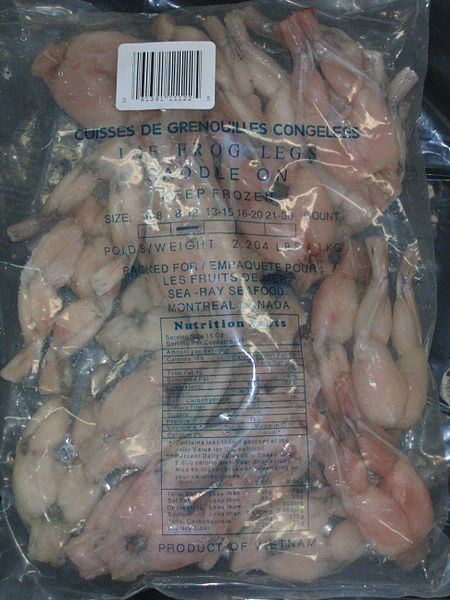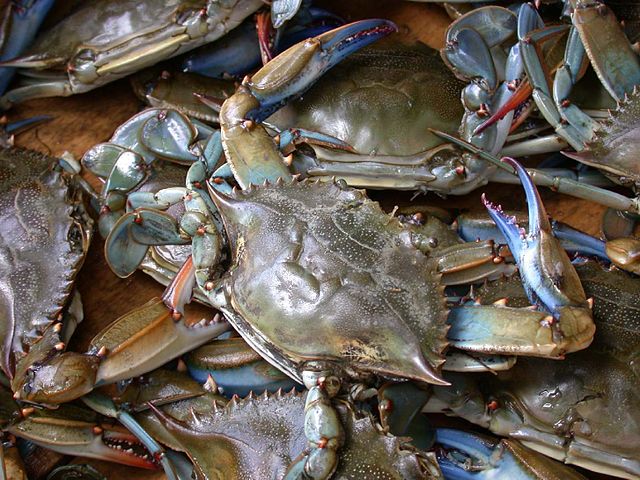Food and drink prohibitions
Some people do not eat various specific foods and beverages in conformity with various religious, cultural, legal or other societal prohibitions. Many of these prohibitions constitute taboos. Many food taboos and other prohibitions forbid the meat of a particular animal, including mammals, rodents, reptiles, amphibians, fish, molluscs, crustaceans and insects, which may relate to a disgust response being more often associated with meats than plant-based foods. Some prohibitions are specific to a particular part or excretion of an animal, while others forgo the consumption of plants or fungi.
"Use of eggs, meet & vine [meat and wine] is strictly prohibited here." Jaisalmer, Rajasthan, India. 1993
A bag of frog legs from Vietnam.
Dromedary camel
Blue crabs, Callinectes sapidus, for sale at a market in Piraeus.
A taboo, also spelled tabu, is a social group's ban, prohibition, or avoidance of something based on the group's sense that it is excessively repulsive, offensive, sacred, or allowed only for certain people. Such prohibitions are present in virtually all societies. Taboos may be prohibited explicitly, for example within a legal system or religion, or implicitly, for example by social norms or conventions followed by a particular culture or organization.
Cannibalism, Brazil. Engraving by Theodor de Bry for Hans Staden's account of his 1557 captivity.

!["Use of eggs, meet & vine [meat and wine] is strictly prohibited here." Jaisalmer, Rajasthan, India. 1993](https://upload.wikimedia.org/wikipedia/commons/thumb/8/88/Use_of_eggs%2C_meet%2C_vine_is_prohibited._Jaisalmeer._93.jpg/640px-Use_of_eggs%2C_meet%2C_vine_is_prohibited._Jaisalmeer._93.jpg)



